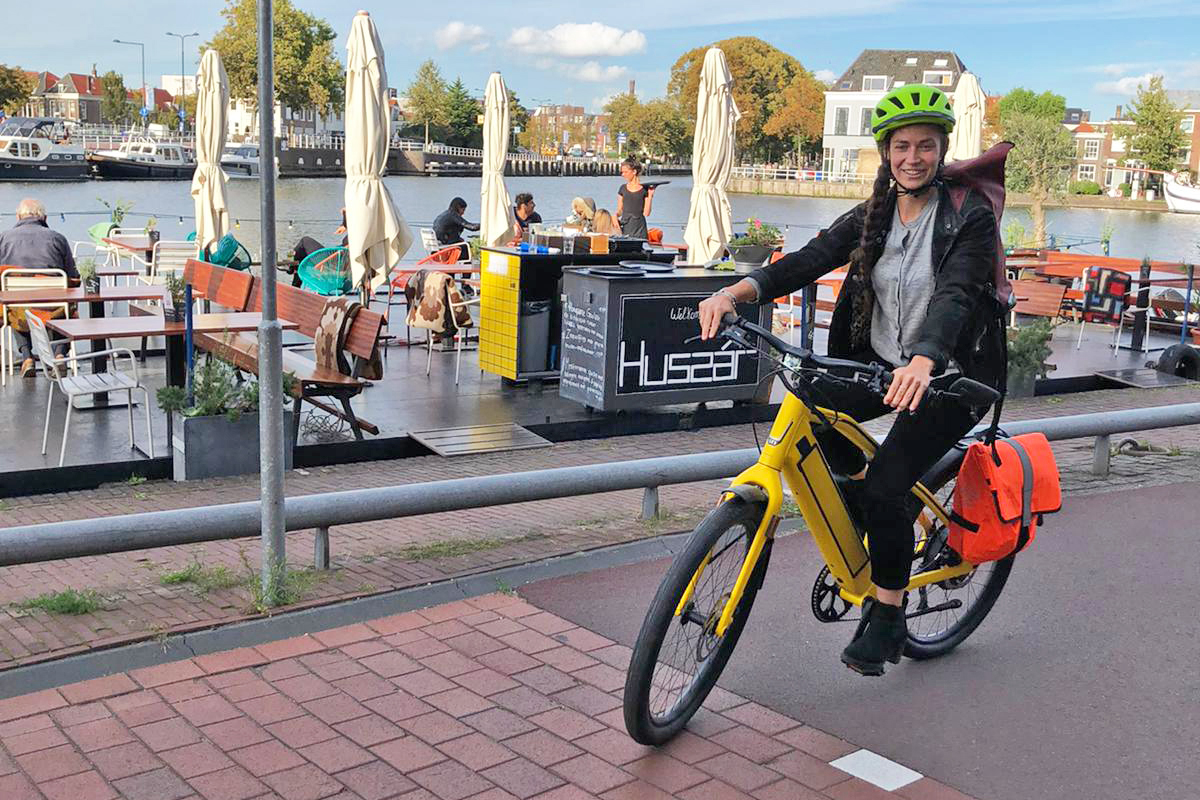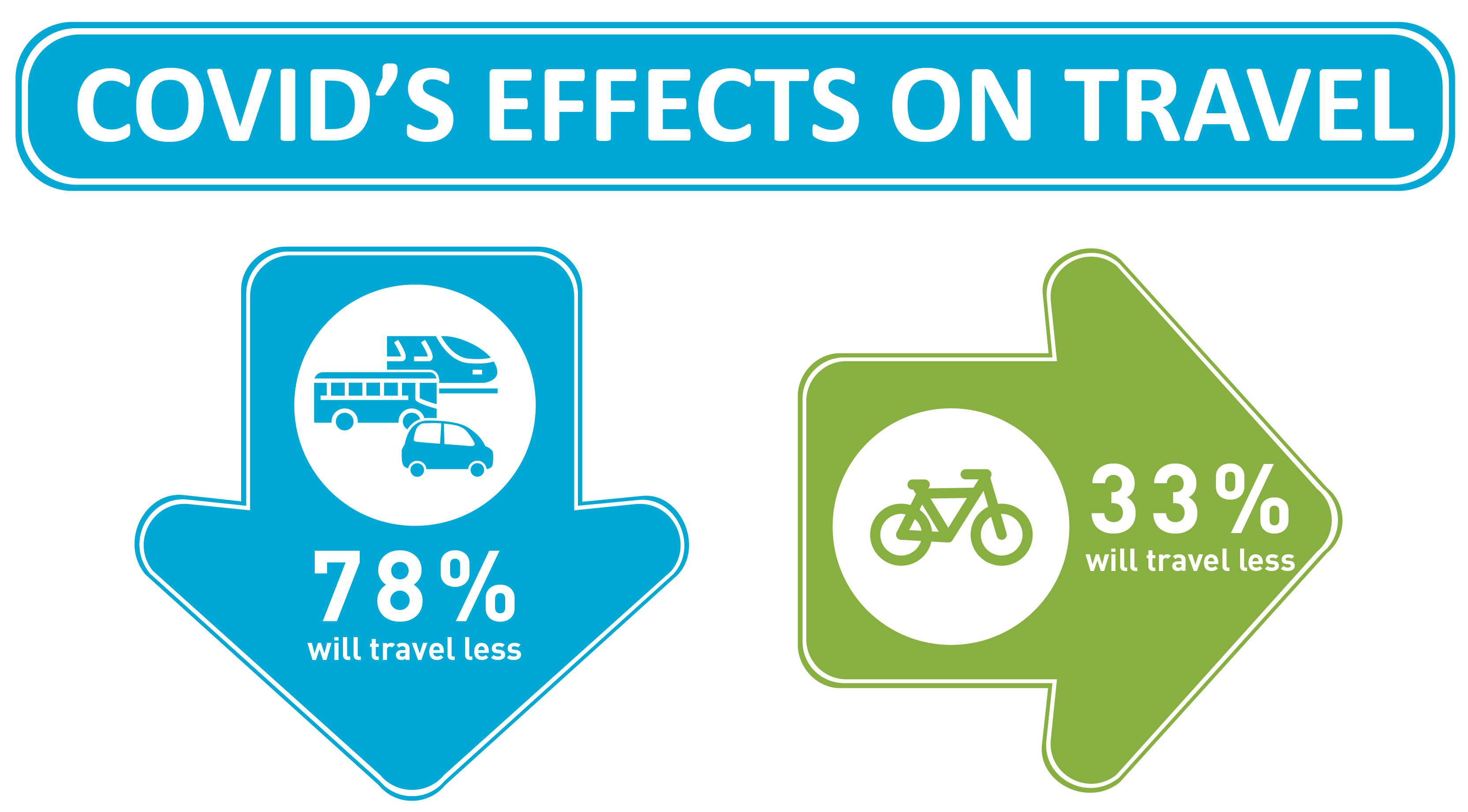Behavioural change / COVID-19 / Cycling / Mobility
Due to COVID-19, cycling wins out over driving and public transport
A poll of the Mobycon team shows that, in the days, weeks and months to come, cycling will continue, and even increase, while motorists and public transport users will travel less.

To provide our team with more options, each of our Mobycon Dutch offices offered a speed pedelec on loan to test out alternatives to driving and public transport to travel to the office.
Now that we have been confronted with the COVID measures for six months, it is becoming increasingly clear what structural changes this crisis will mean for our mobility. We can’t see the complete picture yet, but a number of clear patterns are emerging. Significantly, we’ve all become quite comfortable working from home en masse. The situation is certainly not always ideal; we of course miss direct contact with our colleagues. At home, the work space is not always ideal, and the division between work and leisure time is becoming even more ambiguous than it already was. On the other hand, there are the travel time and costs savings. Additionally, the possibilities for remote working, whether from home or anywhere else, are now better known and understood. Therefore, the trade-offs between working at home or at the office will different at the organizational level.
We asked our colleagues – a group of approximately 80 professionals with various mobility behaviours – what working at home has meant for them. What is striking is that the largest share of those who would usually travel by car or public transport to the office (78%) expect to travel less in the future when it comes to commuting and business travel. For both groups (motorists and public transport users), this is linked to the discovery that they are more productive and have more time for social contacts, sports and hobbies. On the other hand, the proportion of cyclists who expect to continue to travel less is much smaller, at just 33%. This group also indicated that they have experienced much less of the benefits that public transport travelers and motorists identified. In other words, the fact that they travel to the office less often has meant less for them.

On the basis of these findings, we can expect that those who cycle to work will continue to make different decisions in the future between working at home and working at the office. They will be more likely to opt for working at the office when it is safe to do so, while drivers and public transport users will want to limit their loss of travel time, choosing to work from home more often. Time will tell what impact this will have long term, but will give employees who cycle (and their employers) the advantage of easier and higher quality in-person consultation, collaboration and, naturally, more fun.


 ">
">